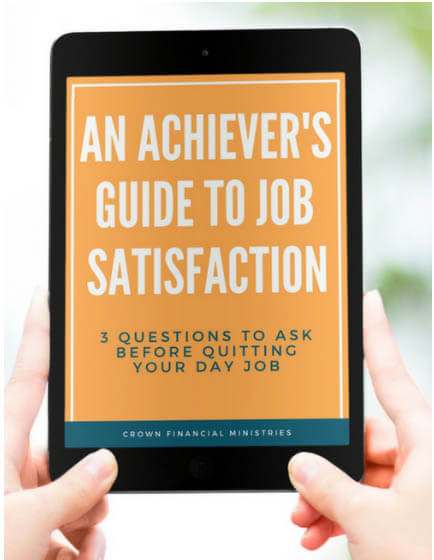Dear Chuck,
For years I have always managed to earn more than I spend. But, my fiancée says we need a budget and she wants it before the wedding.
Help!
Dear Help,
Funny how a fiancée (or wife) can motivate us to get our act together! There seem to be two parts to your question: a) should you say yes to your fiancée’s request? and b) how to put a budget together before the wedding?
The first answer is definitely, yes! Larry Burkett said if he were a pastor he wouldn’t marry a couple thathad not first developed a budget. You have a wise fiancée! Plus, you’ve demonstrated love and honor by seeking to fulfill her desire.

As a single person, it sounds like you’ve been able to get by without a budget because you knew when the money was coming in and where it was going. Adding a wife to the picture requires a plan to manage your combined spending. God will use money to reveal your strengths and weaknesses and teach you to depend on Him more fully.
You’re entering a covenant relationship. A clear financial plan is one way to help your marriage flourish. Dedicating your lives to Christ and His Word will give you wisdom for the days ahead.
Now for the how-to part of your question. A budget is simply a plan that allows you to steward wisely. It’s a visible way to help you handle your money over the next year and years to come. It demands honesty, total transparency, and common goals.
Think of a budget as a reference for both you and your future wife – it will aid you in communication, reflect your individual spending habits, reveal areas for improvement, and help you agree upon a philosophy of money.
Here’s an easy 3-step approach to get you started:
Step 1: Track Your Spending
You both need to track your spending for 30 days to get an accurate idea of what your expenses really are. You can use a budgeting app connected to your bank account, print off your bank statement at the end of the month, or keep a written log to help you keep track. Regardless of the system you choose, you need to be diligent about recording every dollar you spend, every day. Keep in mind that if you use a digital option, you’ll still need to account for any cash you spend.
First, calculate your monthly income.
This is the amount you take home after taxes and employer-based retirement deductions (401(k), 403(b), etc.) have come out. If you’re paid biweekly, double the amount of one paycheck; if you’re paid weekly, multiply by 4. Use your bank statements and paystubs to help.
Second, calculate all monthly expenses based on your combined spending record from Step 1.
Include credit card statements, loan data, utility statements, groceries, phone and internet bill, subscriptions, transportation costs, and cash receipts. This download will help to show you what expenses you should look for to find your total expenditures.
Third, define specific categories. Every dollar that you spend should belong in a category.
You need to account for your fixed expenses first: those are expenses that are the same month to month – tithe, savings, rent, insurance, loans, etc. Next, account for variable expenses: these vary from month to month – utilities, transportation, clothing, food, medical expenses, gifts, entertainment, etc.
Remember that for all of these you are working off a monthly basis. If you have an expense that only comes up once a quarter, you should still include it in a category.
Fourth, subtract the expenses (Step 2) from income (Step 1).
The Easy Guide to a Budget You Love walks you through each of these steps to make budgeting simple, practical, and enjoyable! It sounds like you have a good history of spending less than you earn so you should have a surplus here. Once you have the difference between your expenses and income, apply any surplus to specific categories and goals (savings, investments, future car, house fund, vacation, adoption, etc.). If you have a deficit (your spending is greater than your income), cut expenses out until you have a $0 bottom line.

Step 3: Make a copy for both you and your fiancée.
Once you fill out all areas of your budget, print it, and put it where you can refer to it regularly.
Schedule an hour every month to go over the numbers together. Put it on your calendar now to repeat monthly, so it will be a habit throughout your marriage.
Take the initiative to make your meetings stress-free by having fun snacks, coffee, popcorn, or whatever your “budget” allows. Pray together before you begin, asking the Lord to shed light on any problem areas and for your speech to be seasoned with grace. This is not a time to accuse but to grow so your wallet reflects your heart.
You may want to recruit a wise older couple to come alongside you. Years of wisdom can dispel fears, answer questions and shed helpful insights.
Step 4: Watch Out for Budget Traps
Forbes recently reported several reasons budgets fail. These include:
- Spending Errors: This happens when you budget your bills, not your overall spending. A true working budget must reflect ALL money earned and spent for the month: cash and/or credit.
- Lack of Accountability: Forecasting your spending for the month is important, but the monthly meeting to account for that spending is vital. Accountability is achieved by tracking monthly. Don’t skip this step! Include all cash and credit expenses and income. Continue the use of the spending tracker from Step 1, especially for cash expenditures.
- Unrealistic Numbers: The first budget you create is an educated estimate. Simply adjust and extend grace as you learn to work together. Every month will move you closer to one that works well. Following your spending closely will allow you to adjust and learn how to use all God’s provided for His glory.
Crown’s Money Map can help you stay on track with your budget and the rest of your financial goals. Starting your marriage off on the same page financially will be a large blessing to both of you for years to come.
I urge you to keep your life free from the love of money so you develop a lifestyle based on conviction – not circumstances. Gratitude, trust, and seeking God’s will from the very first budget meeting will serve you well. Like Joshua, may your use of money be a tool that allows you to declare together, “But as for me and my house, we will serve the Lord.”
Let me know how you are doing and congratulations on your upcoming marriage!
Originally published on the Christian Post, June 30, 2017












 Stewardship encompasses everything that God entrusts to us, and for most people, their house is the most expensive item they own. What better way to live as a good steward than to take care of the most valuable material item you have? But remember to store up for yourselves treasures in
Stewardship encompasses everything that God entrusts to us, and for most people, their house is the most expensive item they own. What better way to live as a good steward than to take care of the most valuable material item you have? But remember to store up for yourselves treasures in